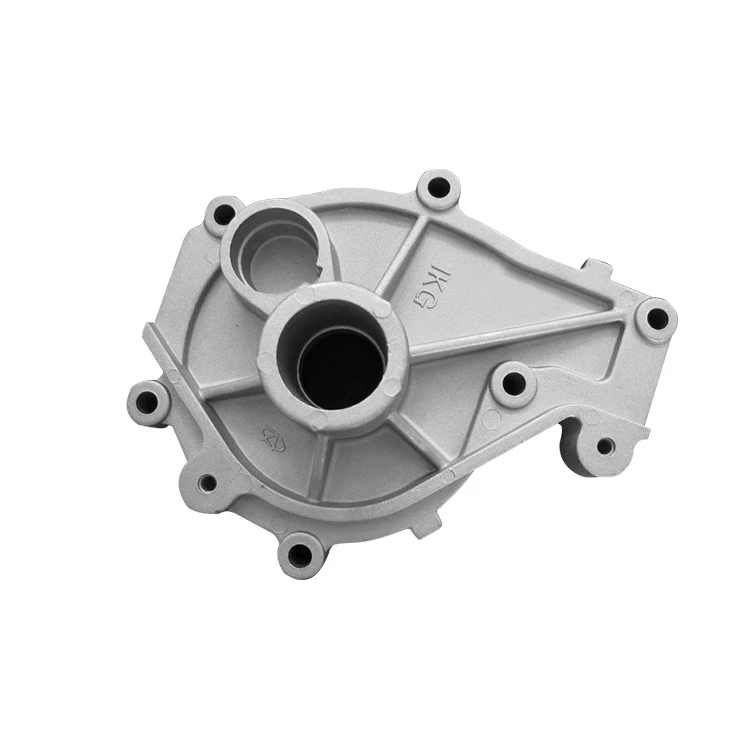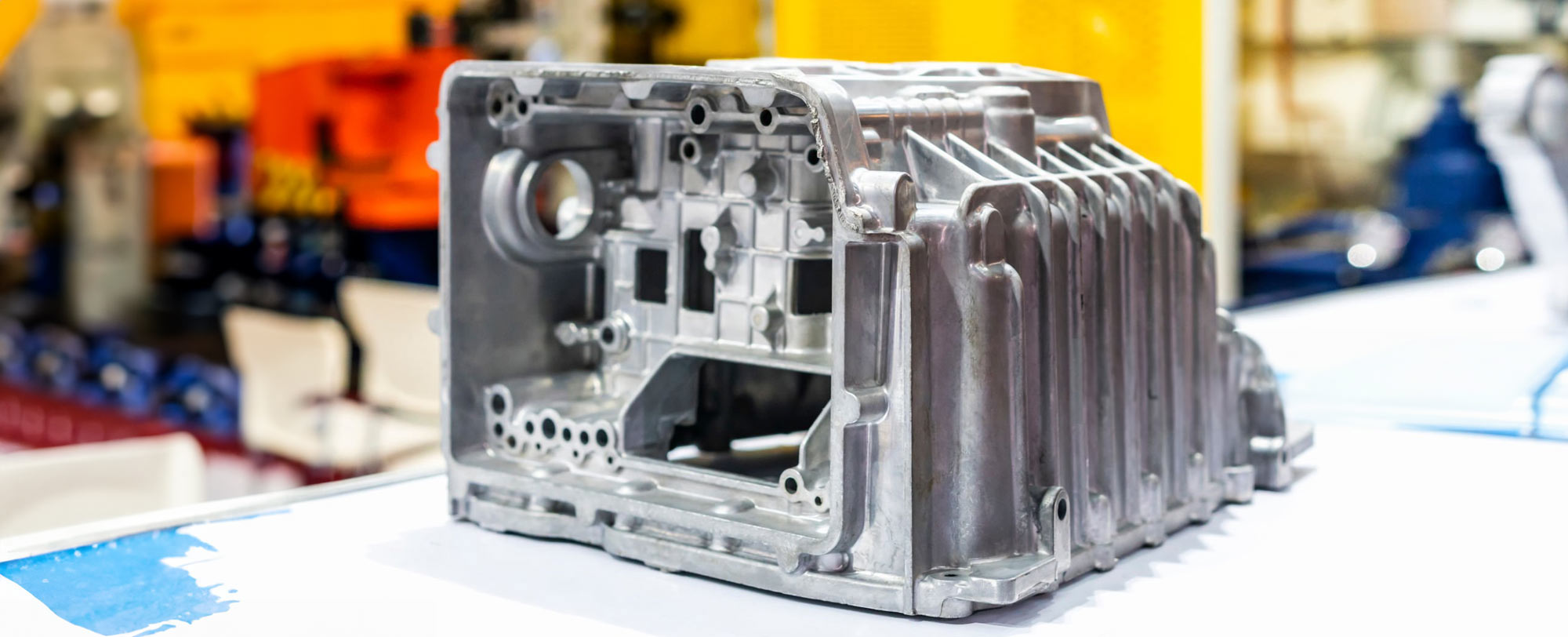The Future of Light Weight Aluminum Foundries: Innovations and patterns Forming the Sector
The aluminum foundry market is undergoing considerable makeover. Key patterns highlight the value of sustainability and performance. Innovations in wise manufacturing and automation are ending up being widespread. Factories are progressively concentrated on utilizing recycled materials. This change questions concerning future methods and technologies. Exactly how will these modifications effect manufacturing techniques and market dynamics? The responses may redefine the sector landscape in unexpected methods.
Advancements in Smart Manufacturing Technologies
As the light weight aluminum foundry market advances, advancements in smart manufacturing innovations are ending up being increasingly important for enhancing efficiency and efficiency. The combination of automation, expert system, and the Web of Things (IoT) is changing typical shop procedures. These innovations enable real-time tracking of procedures, permitting prompt changes that maximize result and lower waste.
Furthermore, device discovering algorithms analyze production data to identify patterns and predict upkeep demands, decreasing downtime. Robotics are progressively utilized for repetitive tasks, releasing knowledgeable workers to focus on even more complex difficulties. In addition, digital doubles-- online models of physical processes-- help with simulations that can improve layout and functional strategies.
The fostering of these wise manufacturing modern technologies is driving affordable advantages in the aluminum foundry market. By improving operations and enhancing decision-making abilities, shops can meet growing market needs while preserving top quality criteria. The future of light weight aluminum foundries is undeniably connected to these technological developments.
Welcoming Eco-Friendly Products and Processes
The aluminum factory industry is significantly focusing on green materials and processes to improve sustainability. This change includes the adoption of sustainable product sourcing, energy-efficient manufacturing strategies, and reliable recycling and waste administration techniques. By incorporating these practices, factories intend to decrease their ecological effect while maintaining competitiveness in the market.
Sustainable Material Sourcing
Exactly how can aluminum foundries improve their sustainability initiatives? Sustainable material sourcing has arised as a necessary approach in achieving this objective. By prioritizing recycled aluminum, shops can greatly decrease their environmental footprint, as recycled materials require less energy and fewer resources contrasted to key light weight aluminum production. On top of that, sourcing materials from licensed suppliers who comply with environment-friendly techniques advertises responsible mining and reduces environmental impact. Foundries are also exploring different products, such as biopolymers and environment-friendly coatings, to complement traditional light weight aluminum processes. Collaborating with stakeholders, including distributors and ecological organizations, cultivates technology in sourcing techniques. Inevitably, welcoming sustainable material sourcing not only lines up with worldwide sustainability goals but additionally placements light weight aluminum foundries as leaders in environmentally responsible manufacturing.
Energy-Efficient Manufacturing Techniques
Light weight aluminum factories are increasingly adopting energy-efficient production strategies to match their sustainable material sourcing campaigns. These approaches focus on minimizing power usage throughout the manufacturing procedure. Advanced modern technologies, such as induction melting and maximized spreading procedures, are being applied to lower the overall carbon impact. In addition, automation and clever manufacturing systems boost operational performance, permitting much better power management. Foundries are likewise discovering the integration of sustainable power resources, such as solar and wind, to power their procedures. By focusing on energy performance, light weight aluminum shops not only reduced production prices however also straighten themselves with international sustainability objectives, making sure a more eco responsible strategy to aluminum production while fulfilling the rising demand for environmentally friendly techniques in the industry.
Reusing and Waste Monitoring
Welcoming eco-friendly materials and processes, light weight aluminum shops are focusing on recycling and waste monitoring techniques to boost sustainability in their operations. By integrating closed-loop systems, these facilities are reducing waste and making the most of resource efficiency. Scrap aluminum, an easily available material, is being recycled on-site, considerably lowering the demand for virgin products and lowering energy usage. Advancements in arranging and refining technologies additionally assist in the recycling of light weight aluminum, guaranteeing that also contaminated materials can be repurposed successfully. Furthermore, shops are taking on sustainable practices such as lowering contaminated materials and advertising using naturally degradable materials for packaging. This dedication to reusing not just decreases ecological effect however likewise improves the economic practicality of aluminum foundries in an open market.
The Role of Automation and Robotics
Automation and robotics are increasingly transforming the aluminum factory sector, substantially boosting manufacturing performance. By incorporating sophisticated modern technologies, shops can lower labor expenses while concurrently improving safety and security requirements for their workforce. This change not just improves procedures however also places the market for lasting growth in a competitive market.
Improved Production Performance
Transforming manufacturing procedures, the integration of innovative robotics and automation modern technologies has actually ended up being a keystone for light weight aluminum factories looking for improved efficiency. These technologies enhance operations, lower cycle times, and enhance item high quality by reducing human mistake. Automated systems can keep an eye on assembly line in real-time, enabling immediate changes that enhance result. In addition, robotics promote the handling of unsafe materials, ensuring much safer workplace while boosting throughput. Anticipating maintenance innovations likewise add to performance by anticipating devices failings, thereby minimizing downtime. As a result, aluminum shops can achieve better uniformity in their products while responding extra swiftly to market demands. This accept of automation is establishing a brand-new standard for performance and functional excellence within the industry.

Decreasing Labor Expenses
The shift towards advanced robotics and automation in aluminum foundries not only improves production effectiveness however likewise plays a substantial duty in minimizing labor prices. By integrating automated systems, factories can reduce the reliance on manual work, which usually includes high earnings and training expenses. Robotics simplify repetitive tasks such as putting, molding, and completing, allowing for a higher result with fewer personnel. This technical change not only minimizes labor-related prices however also improves uniformity and high quality in production. Furthermore, automation can operate all the time, making the most of operational hours without the associated prices of overtime or shift differentials. Because of this, aluminum foundries can attain significant cost savings while preserving affordable prices in an evolving market landscape.
Improving Security Criteria
While typical aluminum foundry operations frequently reveal workers to unsafe environments, the assimilation of robotics and automation significantly boosts security criteria within the market. Automated systems can perform high-risk jobs, such as molten metal handling and hefty lifting, reducing human exposure to unsafe conditions. Furthermore, robotics can run in extreme temperatures and hazardous environments, effectively reducing the threat of injury. Advanced monitoring innovations and expert system assurance real-time safety and security analyses, enabling instant feedbacks to potential hazards. Additionally, automation simplifies workflows, decreasing the probability of crashes brought on by human error. As an outcome, the fostering of these technologies not only enhances security however additionally cultivates an extra effective and efficient working setting in light weight aluminum factories.
Enhancing Energy Effectiveness in Manufacturing
As aluminum foundries look for to maintain competition in an advancing market, improving power efficiency in manufacturing has become a critical emphasis. By taking on innovative modern technologies such as high-efficiency melting heating systems and automated temperature level controls, foundries can especially decrease energy intake. Applying real-time tracking systems enables accurate monitoring of energy use throughout the manufacturing process, making it possible for quick modifications to optimize efficiency.
In addition, changing to alternative energy resources, including sustainable alternatives, can even more reduce the carbon footprint. The assimilation of energy recuperation systems, which recover waste warmth for reuse, is ending up being increasingly typical. Training workers in view website energy management methods ensures that everybody associated with the production process is conscious of power usage.
These efforts not just lower functional costs however additionally straighten with worldwide sustainability goals, placing aluminum factories as liable players in the sector while boosting their general competitiveness. - Precision aluminum casting
Advancements in Recycling Light Weight Aluminum
Innovations in recycling light weight aluminum have actually obtained momentum along with efforts to boost power efficiency in manufacturing. The light weight aluminum industry has actually accepted advanced innovations that enhance the recycling procedure, minimizing power consumption and environmental influence. Techniques such as hydrometallurgy and new sorting technologies improve the removal of aluminum from scrap, boosting return rates and ensuring better recycled material.
The growth of closed-loop recycling systems permits factories to reuse light weight aluminum without substantial destruction in high quality, making the process a lot more sustainable. Innovations in logistics and collection, consisting of enhanced radar and automated sorting, have likewise played an essential role in increasing the effectiveness of light weight aluminum recovery. These advancements not only add to a round economic situation yet also aid reduce the carbon impact related to light weight aluminum manufacturing. As the need for sustainable techniques grows, these innovations position the light weight aluminum shop sector as a leader in liable resource monitoring.
Reacting to Market Demands and Consumer Trends
Versatility has come to be a cornerstone for light weight aluminum shops responding to evolving market needs and customer fads. As industries increasingly focus on sustainability, aluminum foundries are changing towards environmentally friendly methods, including boosted recycling processes and minimized carbon footprints. This change straightens with customer preferences for eco liable products, driving factories to innovate their offerings.
In addition, the surge of lightweight materials in vehicle and aerospace sectors requires developments in aluminum alloys and casting strategies. Shops are buying study and development to produce high-strength, lightweight components that satisfy stringent efficiency requirements.
Modification has actually gotten traction, with consumers seeking customized services. Light weight aluminum factories are leveraging sophisticated production technologies, such as 3D printing, to accommodate certain client requirements effectively. This responsiveness not only satisfies consumer demands read this article however additionally settings light weight aluminum foundries competitively in a dynamic market landscape, ensuring their relevance in an ever-changing industrial atmosphere.

Frequently Asked Questions
Exactly How Do Aluminum Foundries Effect Local Economies?
Light weight aluminum shops significantly impact regional economic climates by developing tasks, boosting need for local providers, and contributing to area advancement. Their procedures usually cause enhanced tax profits, which can fund important civil services and facilities renovations.
What Are the Safety And Security Regulations for Aluminum Foundry Workers?
Safety and security laws for light weight aluminum shop employees consist of obligatory personal protective tools, proper ventilation systems, normal training on hazardous products, and adherence to standards set by occupational health and wellness managements to decrease risks and guarantee employee safety and security. - Precision aluminum casting
How Does Light Weight Aluminum Recycling Affect Global Supply Chains?
Aluminum recycling substantially reduces demand for basic materials, improves resource performance, and maintains costs. This change influences international supply chains by promoting a round economy, advertising sustainability, and making certain a much more resistant market in varying markets.
What Job Opportunities Exist in the Light Weight Aluminum Shop Sector?
Numerous career opportunities exist in the aluminum factory sector, including functions in design, quality assurance, production monitoring, and research and growth. Competent labor placements such as mold and mildew makers and device drivers are likewise sought after.
Just How Do International Trade Plans Impact Aluminum Foundries?
International trade plans considerably influence aluminum factories by impacting import tolls, supply chain dynamics, and market gain access to. These factors can influence operational expenses, competitiveness, and overall success within the international light weight aluminum production landscape.
By focusing on recycled light weight aluminum, foundries can significantly decrease their ecological impact, as recycled products require much less energy and fewer sources contrasted to main light weight aluminum production. Light weight aluminum shops are increasingly taking on energy-efficient production strategies to complement their lasting material sourcing efforts. Automation and robotics are significantly changing the aluminum factory industry, considerably improving production performance. The shift towards progressed robotics and automation in light weight aluminum foundries not only enhances production efficiency however also plays a considerable duty in decreasing labor prices. As aluminum foundries seek to keep competition in a developing market, click to find out more enhancing energy efficiency in production has emerged as a vital focus.